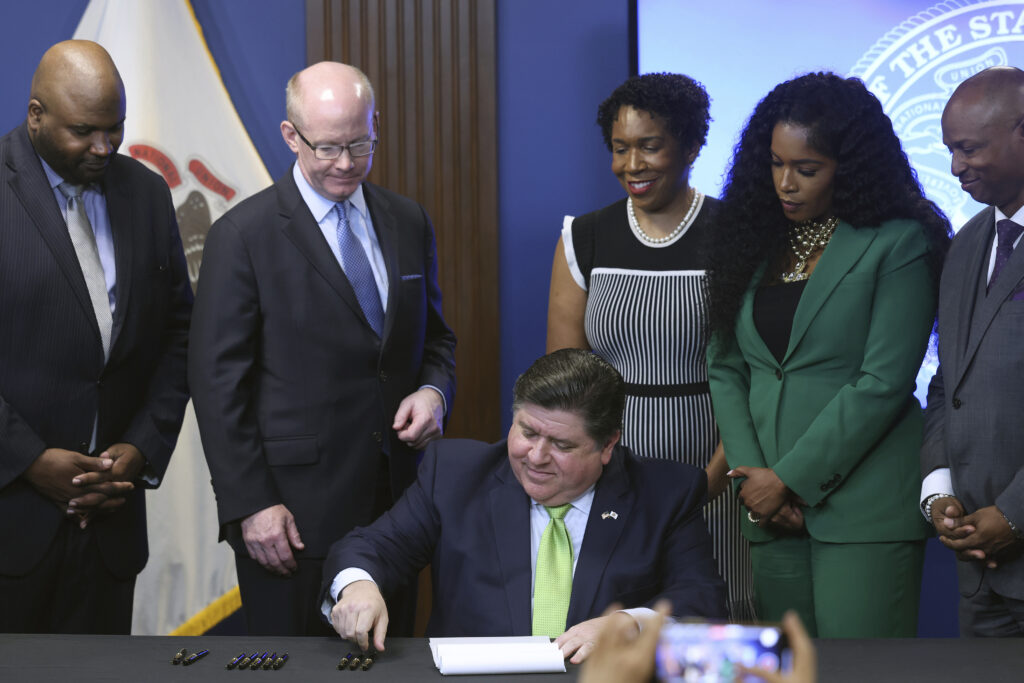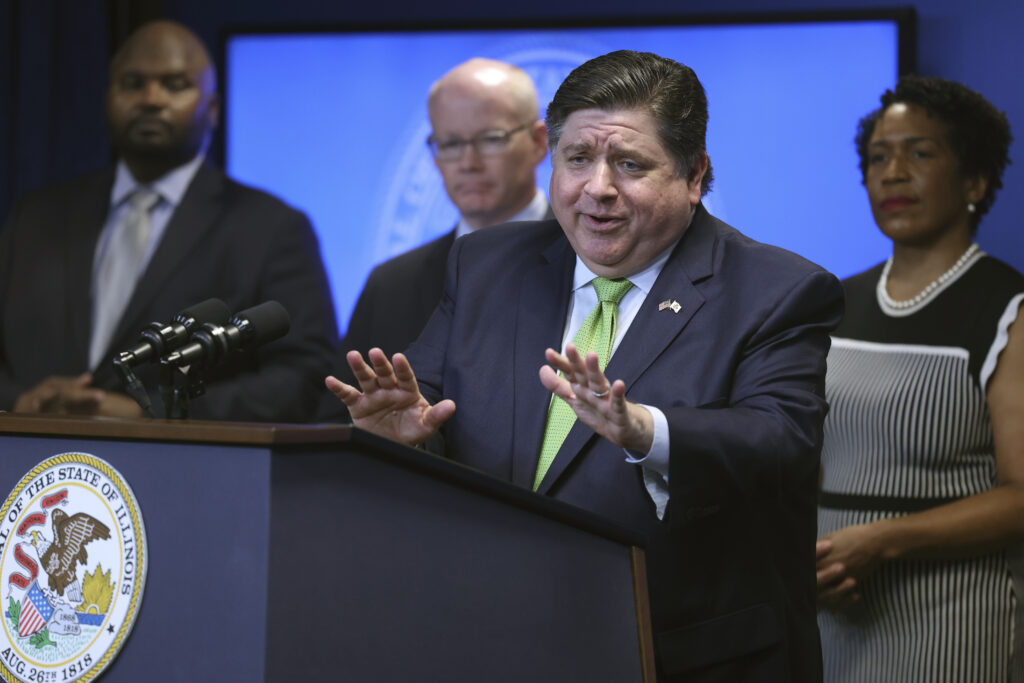
Gov. J.B. Pritzker (D-IL) recently approved a $53.1 billion state budget that garnered criticism from Republican opponents due to its increased spending.
Despite generating approximately $1.2 billion in new taxes, Democrats argue the fiscal plan for Illinois’s upcoming year remains both balanced and responsible, asserting that these taxes will have minimal impact on individual finances.
Pritzker highlighted his sixth consecutive balanced budget, emphasizing a 1.6% increase over this year’s spending and a 32% rise since his first budget in 2019, all “while putting money back in the pockets of everyday Illinoisans.”
To bridge the gap for the fiscal year starting July 1, there will be a total of $725 million in tax increases on sports betting, video gambling, and an enduring restriction on businesses’ ability to offset operating losses, aiming to address the financial deficit.

“There weren’t tax increases or revenue enhancements against everyday ordinary taxpayers,” Democratic state Sen. Elgie Sims said. “What you saw was a recognition of, particularly as it relates to the sports betting industry, the explosion of the industry and some parity.”
Sims also pointed out the budget’s tax breaks, including an increase in the income tax personal exemption to $2,775 for 2024 and the elimination of the 1% sales tax on groceries in 2026.
Additionally, low-income families with at least one child under 12 are eligible for a new child tax credit equivalent to 20% of the earned income tax credit, increasing to 40% next year.
Here are some of the takeaways from the tax changes:
Sports wagering — $200 million
Taxes on sportsbooks have transitioned from a flat 15% to a graduated scale with five different levels, ranging from 20% on adjusted gross revenue below $30 million to 40% on gross revenue exceeding $200 million.
Sportsbook representatives have threatened to leave the state instead of accepting the increased fees, but Pritzker seemed to cast away those comments as bluffs.
“They’re not leaving New York, and they’re not leaving the other states,” the governor said. “We had a much lower tax rate than many of the largest of those markets. And we’re just kind of bringing ourselves more in line but at a lower rate.”

Operating losses capped for businesses at $526 million
Businesses will be limited to writing off a maximum of $500,000 for operating losses in a given year, but they can spread out and deduct those losses over a period of 15 years.
Remote seller sales tax — $400 million
Retailers shipping out-of-state to fulfill remote orders must collect both the 6.25% state sales tax and any applicable local tax at the destination.
Retailers’ discount capped — $101 million
Starting Jan. 1, 2025, retail store operators must collect the state’s 6.25% sales tax and local taxes on purchases, with a capped administrative cost discount of $1,000 per month.
In return, credit card fees on sales tax are limited.
Additional tax changes
Income from video gambling, previously taxed at 34% with 29% allocated for state construction projects and 5% for local municipalities, will now be taxed at 35% to support state construction. It is expected to bring in another $35 million.
CLICK HERE TO READ MORE FROM THE WASHINGTON EXAMINER
The rerenters hotel tax is earmarked at $25 million. Online hospitality retailers purchasing hotel rooms at a discount and reselling them at a higher price will now be required to collect state hotel tax on the price difference instead of just paying tax on the original hotel charge.
Leasing property will now be subject to sales tax, expected to bring in $20 million, with certain exemptions for cases in Chicago already subject to a local lease tax before 2023.






